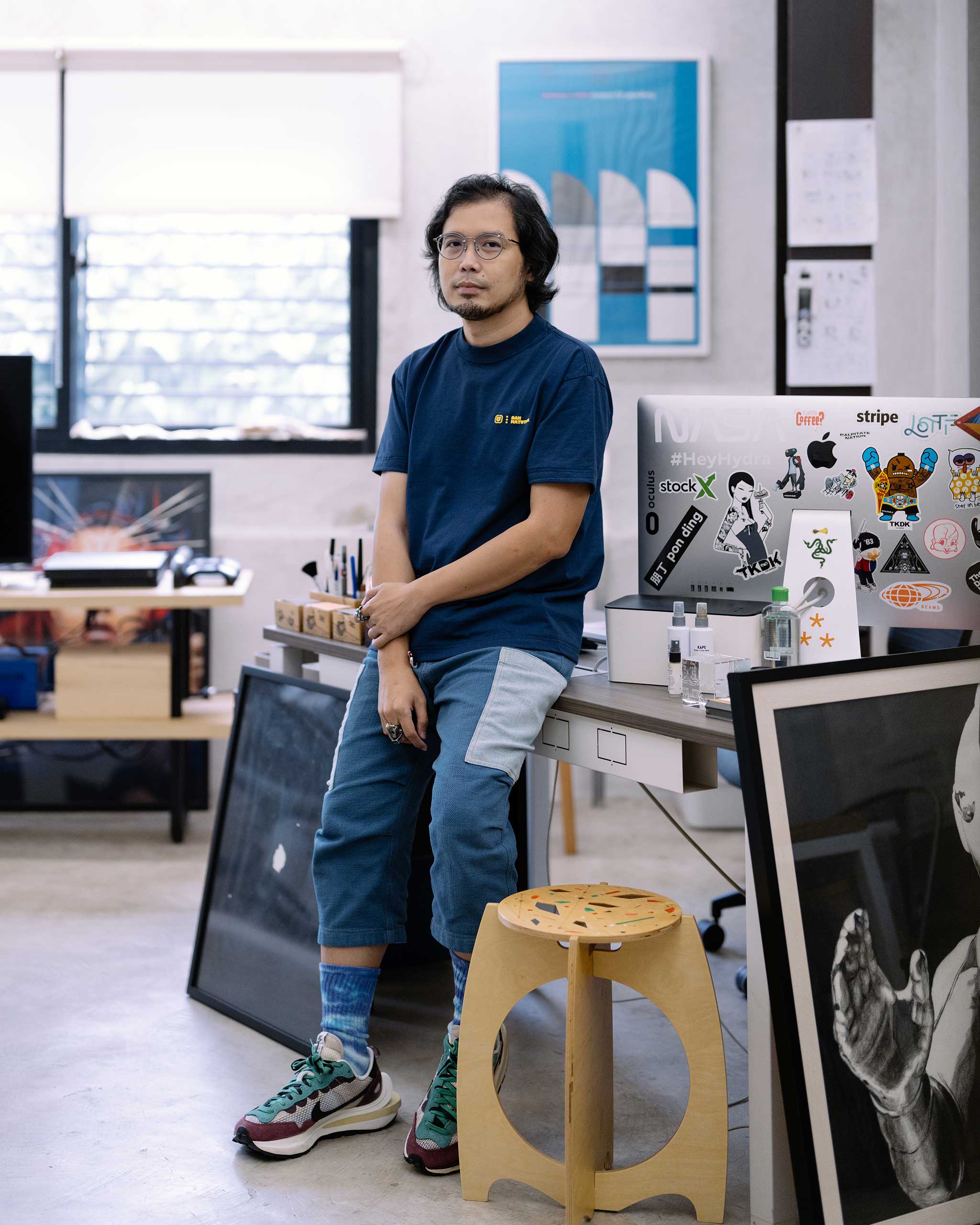Courtesy of Dan Matutina
Vogue Philippines taps several creatives to give tips, share advice, and inspire others who are interested in following a similar career path. Years removed from earning his fine arts degree, gaining a bounty of experience in advertising agencies, and working with more than a handful notable multinational brands on his clientele list, designer and illustrator Dan Matutina is now one of the founding partners at Plus63 and the Hydra Design Group.
I grew up in Tacloban City, and later moved to Manila to pursue Visual Communication at the UP College of Fine Arts. Initially aspiring to become a filmmaker, the prohibitive costs associated with independent film production steered me towards alternatives: design and illustration. Despite initial reservations about working in advertising, practical considerations compelled me to take a job in the industry, where I served as an art director for three years.
Following this period, I made the decision to depart from advertising and, alongside my college friends, started a social design studio. Our focus was on creating designs for non-profits and causes, a commitment that spanned five years. During this time, I rediscovered my passion for design and illustration, dedicating more time to these pursuits, which I couldn’t fully explore during my advertising stint.
Twelve years ago, I co-founded Plus63 with Bern and Rhea, centering our efforts on branding and diverse design projects. Fast forward seven years, we established the Hydra Design Group together with design studios Inksurge, Acid House, and KM Interior Design. Our aim was to try and experiment modular growth for our respective firms. This collaboration allowed us to undertake projects of larger scope and scale than our individual capacities might have permitted.
The Value Of Mentorship
Some of my mentors were professors from UP, namely Cesar Hernando and Leo Abaya, both production designers, artists, and graphic designers. While I can’t recall specific advice they gave me, it was more about observing how they led their creative lives. One notable influence was their humility, allowing younger individuals to take the lead in projects. Despite being more established than me or other younger creatives, they offered support without undermining. This acknowledgment made a profound impression on me, shaping my belief that, as I grow older as a designer, I should strive to emulate this approach.
Another significant influence has been Inksurge (Jois Tai and Rex Advincula). Although we are now part of Hydra Design Group, when I was a younger designer, they shared valuable advice. Their guidance extended beyond the creative aspect of design to administrative and client service matters. At that time, I may not have fully grasped the importance of such advice, but learning from them proved to be pivotal in my design career.
Empowering The Next Generation
It’s especially challenging to stand out as a designer or illustrator when you’re just starting. However, the most crucial thing you need to do is showcase your work. Be patient. In the initial stages, it can be quite frustrating as people might not immediately notice your efforts. Opportunities may not present themselves frequently, or you might hesitate to seize them due to fear of not being prepared. I firmly believe that diligence and a bit of luck will bring attention to your work. Keep learning, continually refine your skills, and consistently showcase your work. This way, when opportunity knocks, you’ll be prepared.
There’s no excuse not to enhance your skills and craft right now because all the information about design and illustration is readily available online. If there’s a specific skill you need to improve, you can search for it on YouTube (various other social media services) and then apply what you learn. That being said, there’s also value in connecting with your peers. Interaction and the exchange of ideas within the design community are genuinely helpful.
Maintaining a bit of distance from your work is also important. I understand that, as creatives, we invest a lot of ourselves in our projects. However, if we allow ourselves to be too affected by people’s comments on our work, it becomes unhealthy. Comments and criticisms about our work are not reflections of our personal selves. Adopting this mindset will contribute to your growth as a creative individual.
One mistake I made before was not treating creative work as “work.” While creative endeavors are undoubtedly enjoyable and thrilling, it’s crucial to approach them as a profession. Ensuring sustainability is the only way to consistently progress in your design and illustration practice. It won’t happen instantly, but it’s something you have to work towards.
